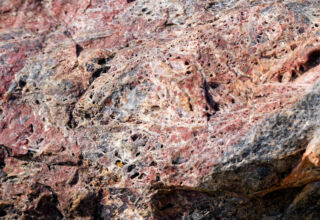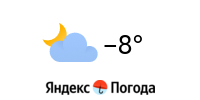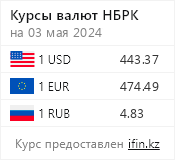С адреса 92.240.68.153 пытались пробить апач запросом GET с параметром : «GET http://www.rps.psu.edu/probing/graphics/earth2.jpg»
Но! Кроме картинки там, на странице, был скрипт:
// A single filter rule.
var Filter = function() {
this.id = ++Filter._lastId;
};
Filter._lastId = 0;
// Maps filter text to Filter instances. This is important, as it allows
// us to throw away and rebuild the FilterSet at will.
// TODO(gundlach): is the extra memory worth it if we only rebuild the
// FilterSet upon subscribe/unsubscribe/refresh?
Filter._cache = {};
// Return a Filter instance for the given filter text.
// Throw an exception if the filter is invalid.
Filter.fromText = function(text) {
var cache = Filter._cache;
if (!(text in cache)) {
if (Filter.isSelectorFilter(text))
cache[text] = new SelectorFilter(text);
else
cache[text] = PatternFilter.fromText(text);
}
return cache[text];
}
Filter.isSelectorFilter = function(text) {
return /##/.test(text);
}
Filter.isWhitelistFilter = function(text) {
return /^@@/.test(text);
}
Filter.isComment = function(text) {
return text.length == 0 ||
text[0] == '!' ||
(text[0] == '[' && /^[adblock/i.test(text)) ||
(text[0] == '(' && /^(adblock/i.test(text));
}
// Given a comma-separated list of domain includes and excludes, return
// { applied_on:array, not_applied_on:array }. An empty applied_on array
// means "on all domains except those in the not_applied_on array." An
// empty not_applied_on array means "defer to the applied_on array."
//
// If a rule runs on *all* domains:
// { applied_on: [], not_applied_on: [] }
// If a rule runs on *some* domains:
// { applied_on: [d1, d2,...], not_applied_on: [] }
// If a rule is not run on *some* domains:
// { applied_on: [], not_applied_on: [ d1, d2, d3... ] }
// If a rule runs on *some* domains but not on *other* domains:
// { applied_on: [ d1, d2,...], not_applied_on: [ d1, d2,...] }
Filter._domainInfo = function(domainText, divider) {
var domains = domainText.split(divider);
var result = {
applied_on: [],
not_applied_on: []
};
if (domains == '')
return result;
for (var i = 0; i < domains.length; i++) {
var domain = domains[i];
if (domain[0] == '~') {
result.not_applied_on.push(domain.substring(1));
} else {
result.applied_on.push(domain);
}
}
return result;
}
// Filters that block by CSS selector.
var SelectorFilter = function(text) {
Filter.call(this); // call base constructor
var parts = text.split('##');
this._domains = Filter._domainInfo(parts[0], ',');
this.selector = parts[1];
};
SelectorFilter.prototype = {
// Inherit from Filter.
__proto__: Filter.prototype,
}
// Filters that block by URL regex or substring.
var PatternFilter = function() {
Filter.call(this); // call base constructor
};
// Data is [rule text, allowed element types, options].
PatternFilter.fromData = function(data) {
var result = new PatternFilter();
result._rule = new RegExp(data[0]);
result._allowedElementTypes = data[1];
result._options = data[2];
result._domains = { applied_on: [], not_applied_on: [] };
return result;
}
// Text is the original filter text of a blocking or whitelist filter.
// Throws an exception if the rule is invalid.
PatternFilter.fromText = function(text) {
var data = PatternFilter._parseRule(text);
var result = new PatternFilter();
result._domains = Filter._domainInfo(data.domainText, '|');
result._allowedElementTypes = data.allowedElementTypes;
result._options = data.options;
result._rule = data.rule;
result._key = data.key;
// Preserve _text for later in Chrome's background page and in
// resourceblock.html. Don't do so in safari or in content scripts, where
// it's not needed.
// TODO once Chrome has a real blocking API, we can change this to
// if (/resourceblock.html/.test(document.location.href))
if (document.location.protocol == 'chrome-extension:')
result._text = text;
return result;
}
// Return a { rule, domainText, allowedElementTypes } object
// for the given filter text. Throws an exception if the rule is invalid.
PatternFilter._parseRule = function(text) {
var result = {
domainText: '',
allowedElementTypes: ElementTypes.NONE,
options: FilterOptions.NONE
};
var optionsRegex = /$~?[w-]+(?:=[^,s]+)?(?:,~?[w-]+(?:=[^,s]+)?)*$/;
var optionsText = text.match(optionsRegex);
if (!optionsText) {
var rule = text;
var options = [];
} else {
var options = optionsText[0].substring(1).toLowerCase().split(',');
var rule = text.replace(optionsText[0], '');
}
var disallowedElementTypes = ElementTypes.NONE;
for (var i = 0; i < options.length; i++) {
var option = options[i];
if (/^domain=/.test(option)) {
result.domainText = option.substring(7);
continue;
}
var inverted = (option[0] == '~');
if (inverted)
option = option.substring(1);
option = option.replace(/-/, '_');
// See crbug.com/93542 -- object-subrequest is reported as 'object',
// so we treat them as synonyms. TODO issue 5935: we must address
// false positives/negatives due to this.
if (option == 'object_subrequest')
option = 'object';
// 'background' is a synonym for 'image'.
if (option == 'background')
option = 'image';
if (option in ElementTypes) { // this option is a known element type
if (inverted)
disallowedElementTypes |= ElementTypes[option];
else
result.allowedElementTypes |= ElementTypes[option];
}
else if (option == 'third_party') {
result.options |=
(inverted ? FilterOptions.FIRSTPARTY : FilterOptions.THIRDPARTY);
}
else if (option == 'match_case') {
//doesn't have an inverted function
result.options |= FilterOptions.MATCHCASE;
}
else if (option == 'collapse') {
// We currently do not support this option. However I've never seen any
// reports where this was causing issues. So for now, simply skip this
// option, without returning that the filter was invalid.
}
else {
throw "Unknown option in filter " + option;
}
}
// If no element types are mentioned, the default set is implied.
if (result.allowedElementTypes == ElementTypes.NONE)
result.allowedElementTypes = ElementTypes.DEFAULTTYPES;
// Extract the disallowed types from the allowed types
result.allowedElementTypes &= ~disallowedElementTypes;
// We parse whitelist rules too, in which case we already know it's a
// whitelist rule so can ignore the @@s.
if (Filter.isWhitelistFilter(rule))
rule = rule.substring(2);
// Convert regexy stuff.
// First, check if the rule itself is in regex form. If so, we're done.
if (/^/.+/$/.test(rule)) {
result.rule = rule.substr(1, rule.length - 2); // remove slashes
result.rule = new RegExp(result.rule);
return result;
}
if (!(result.options & FilterOptions.MATCHCASE))
rule = rule.toLowerCase();
key = rule.match(/w{5,}/);
if (key)
result.key = new RegExp(key);
// If it starts or ends with *, strip that -- it's a no-op.
rule = rule.replace(/^*/, '');
rule = rule.replace(/*$/, '');
// Some chars in regexes mean something special; escape it always.
// Escaped characters are also faster.
// - Do not escape a-z A-Z 0-9 and _ because they can't be escaped
// - Do not escape | ^ and * because they are handled below.
rule = rule.replace(/([^a-zA-Z0-9_|^*])/g, '\$1');
//^ is a separator char in ABP
rule = rule.replace(/^/g, '[^\-\.\%a-zA-Z0-9_]');
//If a rule contains *, replace that by .*
rule = rule.replace(/*/g, '.*');
// Starting with || means it should start at a domain or subdomain name, so
// match :// or ://some.domains.here.and.then.
rule = rule.replace(/^||/, '\:\/\/([^\/]+\.)?');
// Starting with | means it should be at the beginning of the URL.
rule = rule.replace(/^|/, '^');
// Rules ending in | means the URL should end there
rule = rule.replace(/|$/, '$');
// Any other '|' within a string should really be a pipe.
rule = rule.replace(/|/g, '\|');
result.rule = new RegExp(rule);
return result;
}
// Blocking and whitelist rules both become PatternFilters.
PatternFilter.prototype = {
// Inherit from Filter.
__proto__: Filter.prototype,
// Returns true if an element of the given type loaded from the given URL
// would be matched by this filter.
// url:string the url the element is loading.
// elementType:ElementTypes the type of DOM element.
// isThirdParty: true if the request for url was from a page of a
// different origin
matches: function(url, loweredUrl, elementType, isThirdParty) {
if (!(elementType & this._allowedElementTypes))
return false;
// If the resource is being loaded from the same origin as the document,
// and your rule applies to third-party loads only, we don't care what
// regex your rule contains, even if it's for someotherserver.com.
if ((this._options & FilterOptions.THIRDPARTY) && !isThirdParty)
return false;
if ((this._options & FilterOptions.FIRSTPARTY) && isThirdParty)
return false;
if (!(this._options & FilterOptions.MATCHCASE))
url = loweredUrl;
if (this._key && !this._key.test(url))
return false;
return this._rule.test(url);
}
}
Что это такое??? Зачем с картинкой идет спрятанный скрипт? Или это фича хрома 16?






 Канал @EmelyanovEG photo в Telegram
Канал @EmelyanovEG photo в Telegram